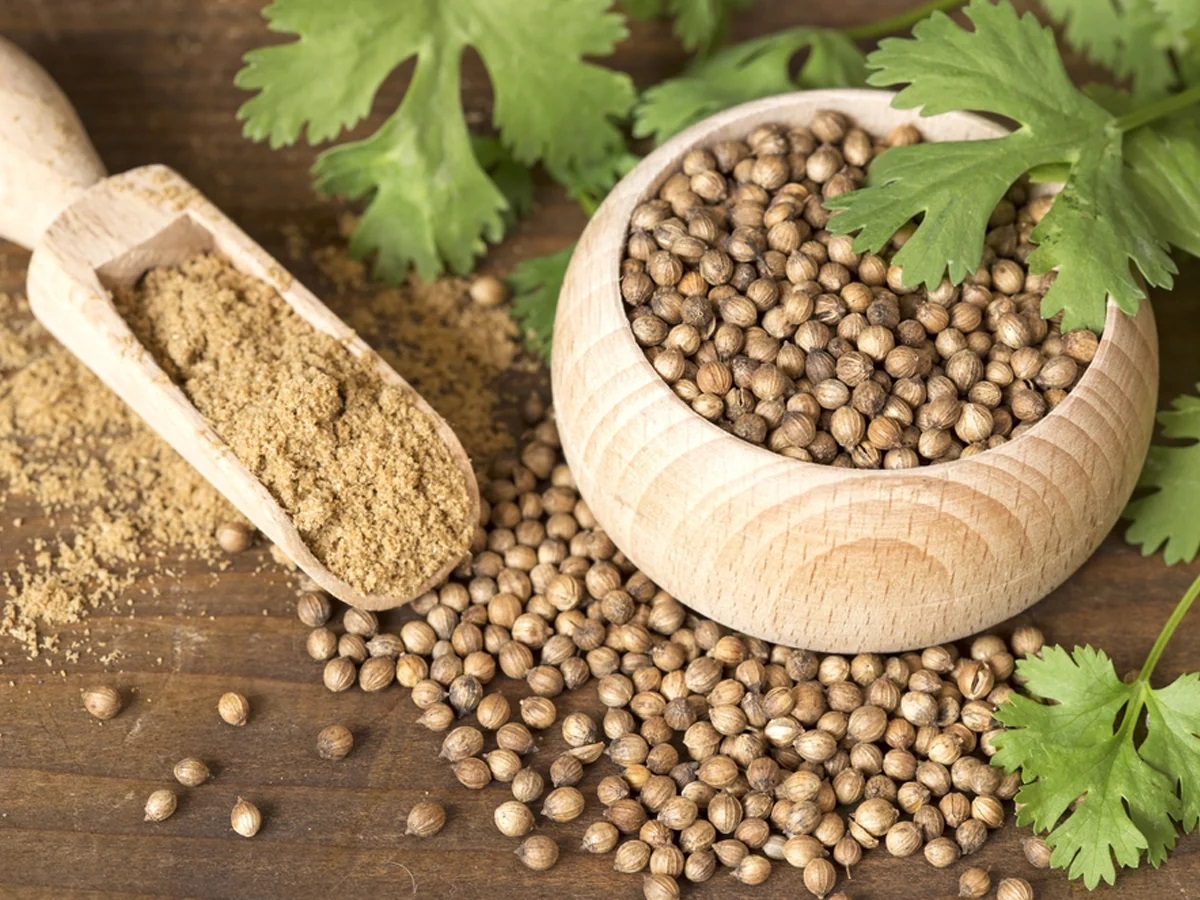Mulching is an effective gardening practice that can benefit coriander (cilantro) in several ways, including moisture retention, temperature regulation, and weed suppression. Here are some mulching tips for coriander seeds in your garden:
- Choose the Right Mulch:
- Use organic mulches such as straw, shredded leaves, grass clippings, or compost. These materials decompose over time, enriching the soil with organic matter.
- Timing of Mulch Application:
- Apply mulch after the coriander seeds have germinated and the seedlings are a few inches tall. Mulching too early can hinder seed germination by blocking light or trapping too much moisture.
- Mulch Thickness:
- Apply a 2-3 inch layer of mulch around the coriander plants. Too thick a layer can suffocate the plants, while too thin a layer may not effectively suppress weeds or retain moisture.
- Mulch Placement:
- Keep the mulch a few inches away from the base of the coriander plants. Direct contact with the stems can cause rot or provide a habitat for pests.
- Weed Suppression:
- Ensure the mulch covers the soil adequately to suppress weeds. Weeds compete with coriander for nutrients and water, so effective mulching helps reduce this competition.
- Moisture Retention:
- Mulch helps retain soil moisture by reducing evaporation. This is particularly beneficial during hot and dry periods. Check soil moisture regularly and water as needed, especially during dry spells.
- Temperature Regulation:
- Mulch helps regulate soil temperature by keeping the soil cooler in the summer and warmer in the winter. This is particularly helpful for coriander, which prefers cooler growing conditions.
- Soil Health:
- As organic mulch decomposes, it adds nutrients to the soil, improving its structure and fertility. This creates a better growing environment for coriander.
- Pest Control:
- Certain mulches, like pine needles or cedar chips, can help deter pests. However, ensure the mulch you choose is appropriate for your garden’s overall health.
- Renewing Mulch:
- Check the mulch periodically and replenish it as needed. Organic mulches decompose over time, so adding a fresh layer helps maintain its benefits.
- Avoid Over-Mulching:
- Be careful not to over-mulch, as too much mulch can create overly moist conditions, leading to root rot and other fungal diseases.
- Mulching Containers:
- If growing coriander in containers, use mulch to retain moisture and keep the soil temperature stable. Ensure the containers have proper drainage to prevent waterlogging.
By following these mulching tips, you can create an optimal growing environment for your coriander plants, leading to healthier growth and a more abundant harvest when gardening.
What are some Fertilization tips for Coriander seeds in your garden?
Fertilization plays an important role in growing healthy coriander (cilantro) plants. Here are some tips to ensure your coriander gets the right nutrients for optimal growth:
- Soil Testing:
- Conduct a soil test before planting to determine nutrient levels and pH. Coriander prefers a pH between 6.2 and 6.8. Based on the results, amend the soil to correct any nutrient deficiencies.
- Organic Matter:
- Incorporate plenty of organic matter into the soil before planting. Compost, well-rotted manure, or leaf mold improves soil structure, fertility, and water retention.
- Balanced Fertilizer:
- Use a balanced organic fertilizer (such as 10-10-10) or a slow-release granular fertilizer at planting time. Coriander doesn’t require heavy feeding, but balanced nutrition supports healthy growth.
- Nitrogen Levels:
- Avoid high nitrogen fertilizers as they can promote excessive leafy growth at the expense of seed production. A balanced or slightly lower nitrogen formula is ideal.
- Side-Dressing:
- Apply a side-dressing of compost or a balanced fertilizer a few weeks after germination, especially if the plants look pale or are growing slowly. Work the fertilizer lightly into the soil around the plants.
- Fish Emulsion or Seaweed Extract:
- Use diluted fish emulsion or seaweed extract as a foliar feed or soil drench every 2-3 weeks. These organic fertilizers provide essential micronutrients and promote vigorous growth.
- Avoid Over-Fertilization:
- Do not over-fertilize, as this can lead to lush foliage with fewer seeds and increase the risk of pests and diseases. Follow the recommended application rates on the fertilizer package.
- Compost Tea:
- Water with compost tea to provide a gentle nutrient boost. Compost tea enriches the soil with beneficial microorganisms and nutrients, promoting healthy plant growth.
- Fertilize Before Planting:
- Prepare the soil by mixing in organic compost or a balanced fertilizer a few weeks before planting. This allows the nutrients to integrate into the soil, providing a nutrient-rich environment for seed germination.
- Monitor Plant Health:
- Regularly check your coriander plants for signs of nutrient deficiencies (e.g., yellowing leaves, stunted growth). Address any issues promptly by adjusting your fertilization routine.
- Container Gardening:
- If growing coriander in containers, use a high-quality potting mix enriched with slow-release fertilizer. Container plants may need more frequent feeding due to nutrient leaching from regular watering.
- Crop Rotation:
- Practice crop rotation to prevent soil nutrient depletion and reduce pest and disease buildup. Avoid planting coriander in the same spot where other heavy feeders grew in the previous season.
By following these fertilization tips, you can provide your coriander plants with the necessary nutrients for robust growth, leading to a healthy and productive harvest.
What Is a Main Health Benefit of Coriander Seeds in Recipes?
Antioxidant Benefits
- Neutralizes Free Radicals: Coriander seeds are rich in antioxidants that help combat oxidative stress and protect cells from damage caused by free radicals. This can contribute to overall health and may reduce the risk of chronic diseases such as heart disease and cancer.

